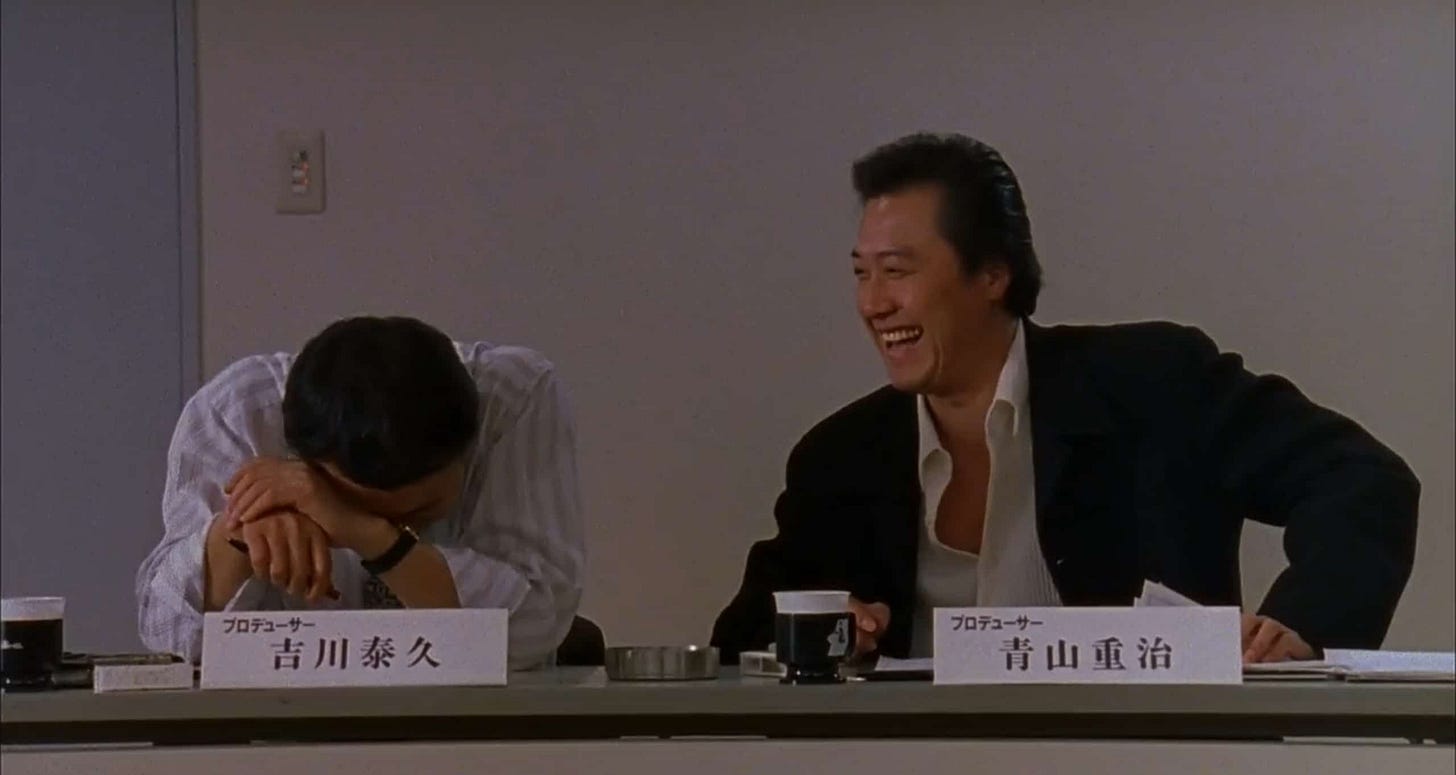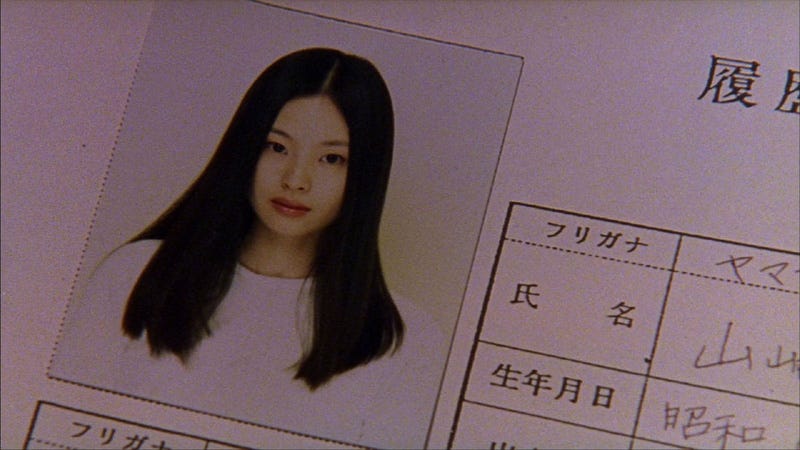Audition(1999) For Valentine's Day
A casual analysis of Murakami Ryu/Takashi Miike's post-second-wave-feminist romance horror film.
I’m a weirdo. On Valentine’s Day, I decided to attend a local screening of Murakami/Takashi Miike’s Audition(1999). What I didn’t expect was its intelligent post-second-wave feminist critique of romance. The film is based on a same-titled book.
My favorite contemporary fiction author is Murakami. Because I’m a hipster, it’s the other Murakami(Ryu not Haruki). You’d be mistaken to think that there’s some huge Murakami artistic clan from Japan including Japanese visual artist Takashi Murakami. They aren’t.
The reason I love Murakami Ryu so much, besides his gory tawdry noir, is the way he writes women. Watching this film before reading the book definitely felt like cheating.
The story of Audition begins with a man named Aoyama. He loses his wife tragically to cancer and is left to raise a young boy alone. Years pass and his teenage son asks his father “Why don’t you get married again pops?” The next scene we see is of Aoyama and his colleague at the edge of a bar.
“I’ll be married again soon.”
“Have you found anyone?”
“No, but I figured I’d get married again soon. Someone older, a career woman, I don’t care how much how she looks.”
This scene is interesting. He states his marriage in the same matter-of-fact way as telling a friend of a new home or car purchase. His colleague asks whether he’ll get an arranged marriage. Aoyama sits on the idea until his friend comes up with a brilliant scheme. They’d hold an audition for his new wife. The men conveniently work in the film industry, and with the guise of a film, they’re able to summon a roster of potential wives.
Audition is touted as a horror film yet the intelligent writing and pacing are nothing I’ve seen before in traditional horror. The wacky audition montage was so universal that a theatre full of San Franciscans laughed. The cerebral nature of this film is also something I’ve only seen in Eastern films of that era. America is only catching up now.
Aoyama becomes fixated on a young woman before he even meets her. Simply from looking at her Audition photo. She’s also a trained ballet dancer like his deceased wife. When we meet Asami in person, it’s love at first sight. Not much of what she says makes sense. She has a spotty job history and little emotional depth. Yet she drenches Aoyma with ego-boosting compliments. She’s half his age and she looks AI-generated. Seriously, she is incredibly beautiful. The film does a great job of giving the viewer a voyeuristic perspective of Asami(model, Eihi Shiina ) while also critiquing that same objectification.
I’ll give a spoiler-free analysis of the film–this is definitely a “feminist” film but not in the way Westerners would find something feminist. In fact, I think most Western viewers would either critique it for falling into old tropes about scorned women or mentioned objectification. Audition is a critique of romance itself. Aoyama is deadset on Asami despite her falling out of all of the conditions we hear at the beginning of the film. She’s closer to his son’s age than his own, she has no career and is functionally one-dimensional. Yet, she is angelically beautiful. This beauty is so captivating that the prey(a girl lured from a film audition) can become the predator(of a wealthy, accomplished older man).
Akin to Bronte’s Wuthering Heights, Fitzgerald’s The Great Gatsby, and Nabokav’s Lolita–Audition is a story about grief. Middle-aged men grieving old objects of desire or their own youth. This unresolved grief turns into a blinding obsession which ultimately seals their demise.
The film uses alcohol as a great symbol. It’s subtle and doesn’t beat you over the head. Alcohol, like Gatsby’s Green light, is used as a siren song calling each of the men to further delusion. When gone past the point of no return they no longer even desire to return.
Audition is also a commentary on the film industry, class, and gender in post-war Japan…Towards the end of the film, the point is really on the nose. Despite that, it’s a fun revenge thriller film.







I'll have to check this out! Definitely feel this is one of your stronger posts so far, digging up something uncommon and looking through your own lens at it - would love to see more like this :)
Keep going! I’d really love to read a part II review with all the spoilers in (saw the film in about 2000 but have read most of Murakami Ryū’s translated stuff)